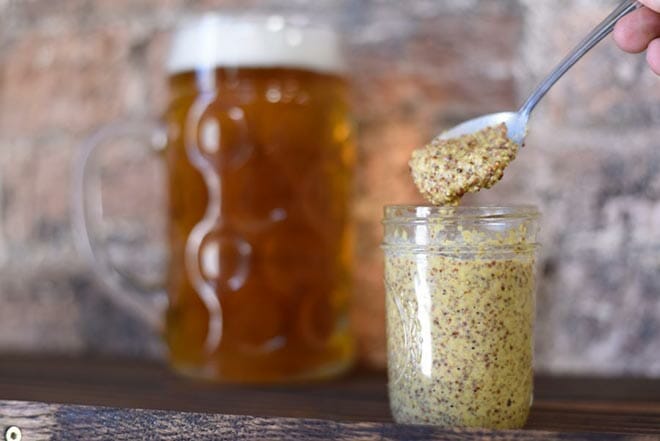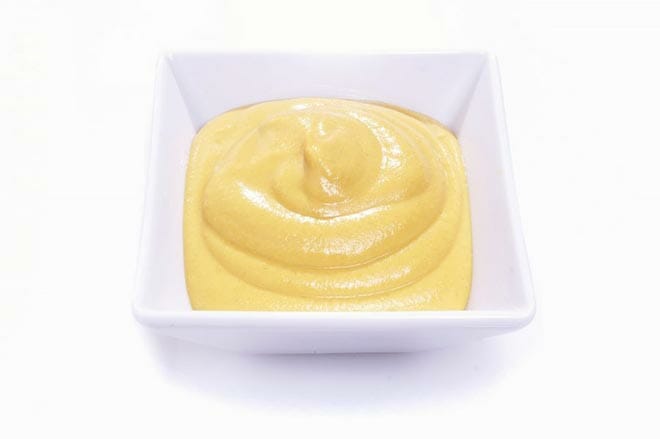In the food and beverage industry, food strainers serve as a significant part of the manufacturing process. This seemingly simple step of straining serves to protect the food or beverage from contamination or unwanted particles, prevent recalls, and ensure production efficiency. But food processing mesh isn’t just for preventing contaminants, it also preserves the standard of the item, as evidenced so completely in the production of prepared mustard.
Why mustard is unique in the food industry
Unlike other modern food products, mustard has been around for centuries. There are indications of mustard dating back to ancient Egypt and mustard seeds were likely used in even earlier civilizations. Romans were known to mix crushed mustard seeds with wine must, unfermented grape wine, creating a paste to garnish their foods, or perhaps hide the flavor of tainted meat.
The history of mustard is distinct, and so is the production process used to create each unique style, flavor, and type of mustard. While Canada continues to be a leading producer of high-quality mustard seeds, the US has increased its production of yellow mustard seeds and continues to be a leading consumer and producer of prepared mustard. From brown to yellow, mild to spicy, and smooth to seeded, mustard quality and standards are dependent on the precision of strainers for food.

Strainers and sieves improve finesse
An industrial food strainer or sieve serves an important role in the world of mustard. At least 80 new blends of mustard join the market each year, all following their own specific filtering process to create a particular quality of smoothness or graininess.
The finesse test at the end of the production process is what helps mustard manufacturers determine if the food strainers are doing their job, or if different strainers need to be implemented. This is particularly evident when comparing the smoothness of traditional yellow mustard to the different textures available in European style mustards, Dijon mustard, or whole grain mustard.
Finding the perfect strainer for mustard
SaniClean strainers are made from stainless steel (316L) or other corrosion-resistant alloys for more corrosive liquids. The material is highly important in the straining process in order to prevent rust or corrosion, resulting in food contamination. Creating food processing mesh that goes above and beyond food industry standards means every part of the production process is protected and secure. But how do you determine which type of strainer is right for the production of mustard?
The first step is to determine the particle size that needs to be filtered out of the mustard. Strainers are broken down into three main filtering categories:
- Coarse straining for large particles
- Medium straining for particles 75 to 1905 microns
- Filtration for particles down to 5 microns

Strainers for food are designed to accommodate a variety of different systems and setups and can be integrated into new or existing piping solutions. Every strainer is designed to meet a particular standard of temperature, production speed and capacity, particle size, and the percentage of particles being captured. Dual filtration systems for large capacity productions maintain work efficiency, allowing one strainer to be cleaned while the second filter is in use.
Finding the best filtration for mustard production is determined by all of these elements, from ingredients to temperature, and particularly the particle size that needs to be filtered from the product.
Mustard straining recap
Mustard production is largely impacted by the use of industrial food strainers. Finding the right strainer is dependent on several key elements:
- The ingredients used to produce the mustard. This helps determine the correct material for the strainer.
- The size of the particles that need to be strained from the mustard. What particle size influences your finesse test?
- The type of mustard you are producing. Every mustard goes through several levels of straining or filtration and the type of mustard you make impacts that process.
SaniClean Strainers, a Newark Wire brand, has been making food processing mesh for decades. Every strainer, assembly, filter, and replacement part is designed for a variety of applications with the highest quality standards. Our products are easy to clean and withstand even the most demanding production cycles. Contact us today to learn more about how SaniClean food strainers can assist with your industrial food strainer needs.
